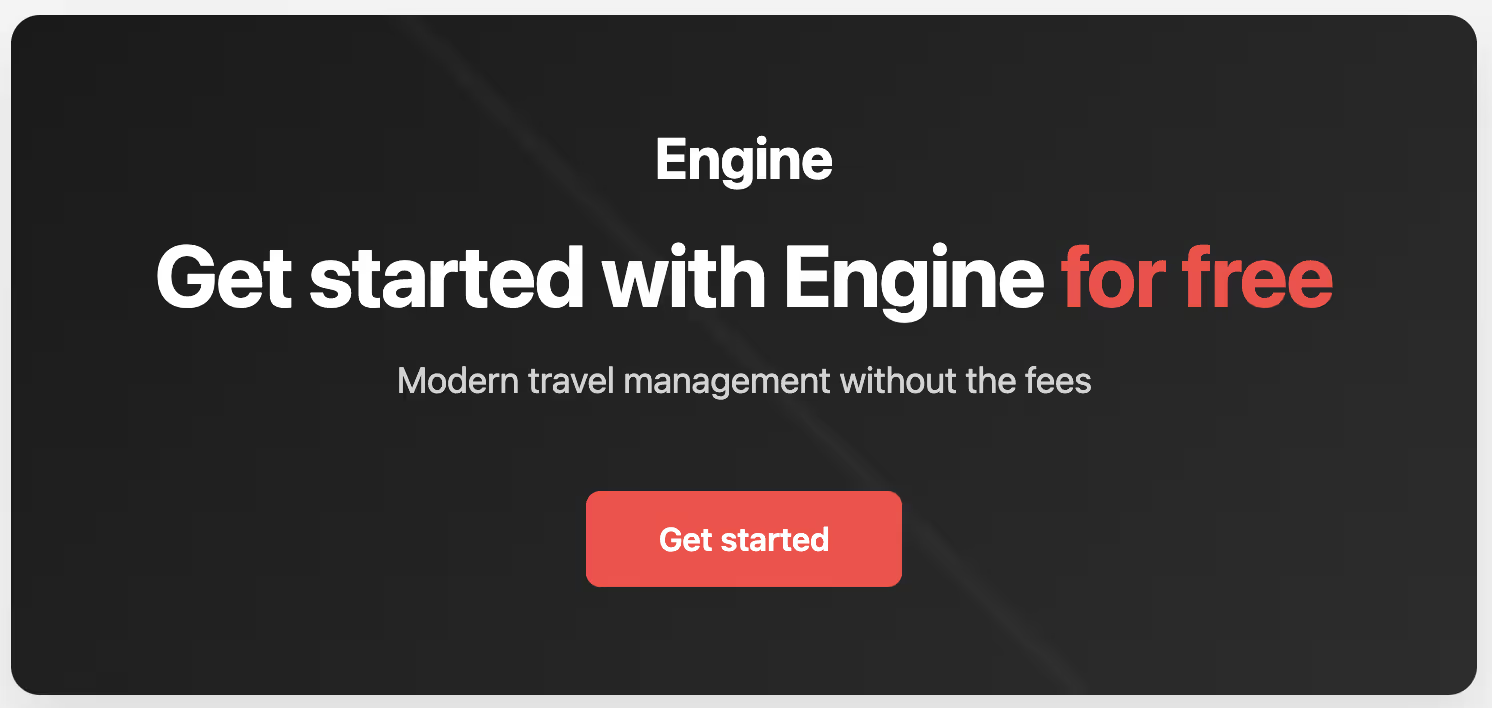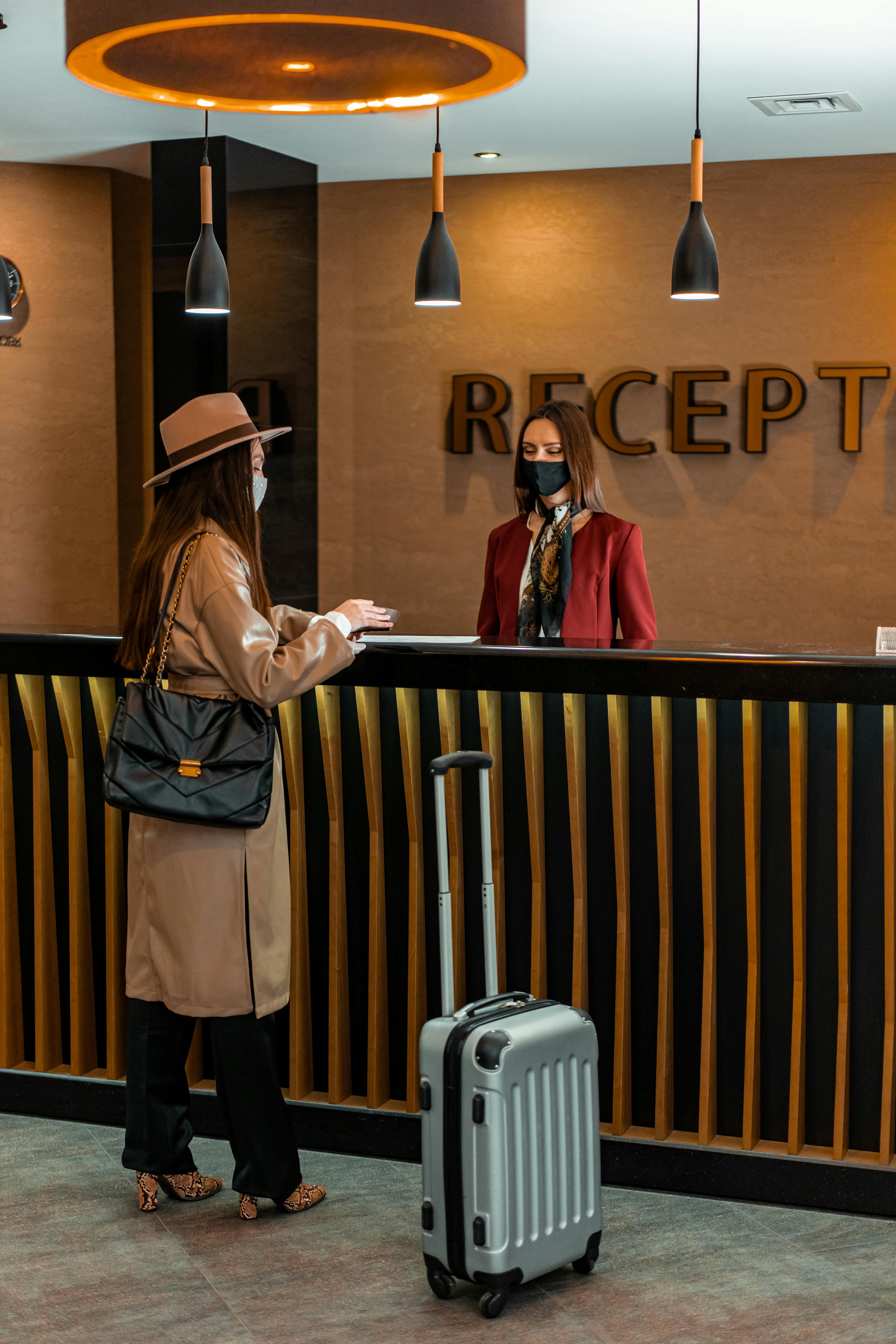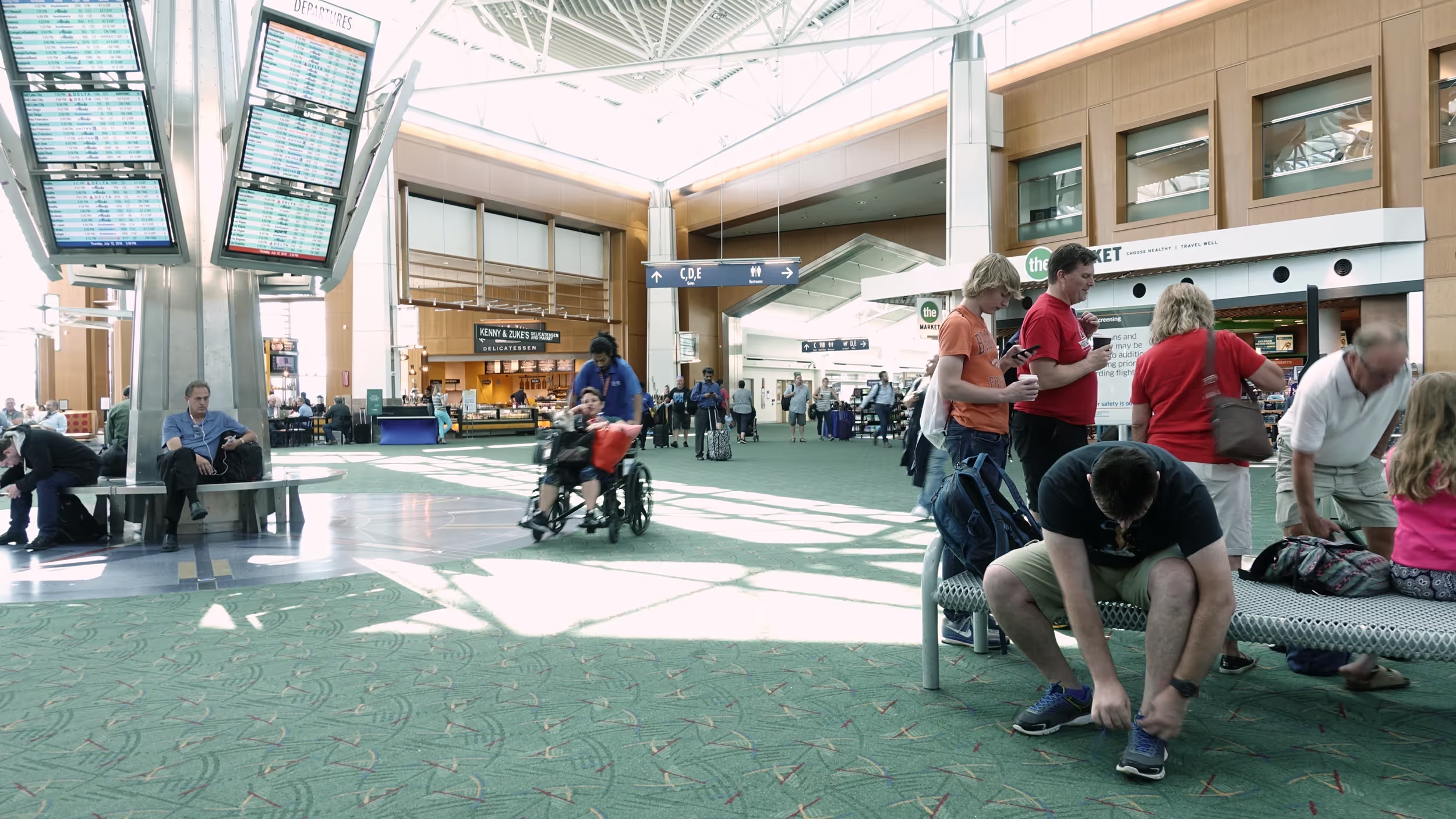8 Tips for Planning A Comfortable Long-Term Hotel Stay

Your crew's eight-week deployment starts Monday. You've got 12 rooms booked at a property 20 minutes from the job site; until the hotel calls Friday afternoon saying they overbooked and can only honor nine reservations.
Now you're trying to find rooms in a hurry, crews are threatening to walk, and your project manager is asking why accommodations aren't sorted yet.
Extended hotel stays for work crews aren't like booking weekend trips. Project timelines shift, budgets need defending, and crews lose focus when accommodations create friction.
This guide covers choosing properties that match your deployment length, protecting budgets when timelines change, tracking costs by project, and keeping teams productive during weeks away from home.
Choose Property Type Based On Stay Length And Crew Size
Standard hotels charge daily rates that compound over weeks. Your crew doesn't need turndown service, they need functional living space for six weeks straight.
For 2-4 week stays, book extended stay properties with kitchens, laundry, and weekly housekeeping.
For 8+ week deployments, evaluate corporate housing for apartment-style accommodations and for 12+ week projects, furnished apartments often deliver better value than hotels.
A crew without a kitchen burns an extra $30 per person daily on restaurant meals. Over eight weeks, that's $20,000 wasted across a 12-person crew—money that should protect your project margin.
Calculate total cost at weekly or monthly rates versus daily rates compounded. Filter for properties with full kitchens and on-site laundry. Book within 15 minutes of the job site to reduce crew drive time. Engine's platform includes over 800,000 properties with filters for extended stay amenities.
Book Individual Rooms vs. Group Accommodations Correctly
You need 15 rooms for your crew but the booking site only lets you reserve 5 at a time. The booking process changes based on crew size.
For 1-9 Rooms
Book directly on Engine with instant confirmation. Our standard booking flow gives you immediate rate quotes.
For 10+ Rooms
Submit a group booking request through Engine. Dedicated trip managers negotiate rates and handle logistics for complex multi-week, multi-location deployments.
Trying to "hack" multiple individual bookings for large crews loses you group pricing. You pay more per room and risk booking errors across separate reservations.
Submit group requests three to four weeks ahead for best rate negotiation. Provide flexible date ranges if your project timeline isn't locked.
Protect Your Budget With Cancellation Flexibility
Equipment delivery delayed two weeks? Non-refundable bookings mean paying for empty rooms while crews wait to start.
Engine's Flex Pro guarantees refunds for any cancelled or modified trip, even on non-refundable rates. This overrides hotel policies—you get money back when project timelines shift. Modify or cancel directly from the platform without calling support.
A five-day delay across 10 rooms at $150 per night costs $7,500 in wasted accommodation budget. Without cancellation protection, you're gambling that nothing goes wrong
Add Flex Pro when:
- Projects have uncertain start dates or timeline dependencies
- There's significant delay risk
- Crew bookings are tied to weather-dependent work
Tag Every Booking By Project For Clean Cost Allocation
Finance asks "what did the Riverside job cost in accommodations?" and you're hunting through three months of emails. Your HVAC crew in Atlanta costs need tracking separately from the roofing team in Dallas.
Engine's Custom Fields let you tag every booking by project code, job site, or client name before booking completes. Tags flow automatically into consolidated reporting and monthly invoices.
You can't defend project budgets or bill clients accurately when accommodation costs are buried across dozens of receipts. Without tagged bookings, you're manually sorting expenses long after projects close.
Create project code taxonomy before booking season starts (format: CLIENT-SITE-TRADE). Require all bookers to tag reservations in your booking workflow. Review tagged spend monthly to catch budget overruns early.
Eliminate Payment Friction With Centralized Billing
Hotels demand credit card authorization forms for every crew member. Field crews don't have corporate cards, or cards don't work in remote areas. Crews fronting costs with personal cards creates reimbursement nightmares.
Direct Bill
Eliminates credit card authorization forms entirely. One consolidated monthly invoice covers all travel across all crews and projects.
Incidental Coverage
No credit card needed at check-in. Engine's Incidental Coverage handles costs upfront.
Crews using personal cards for company travel creates cash flow problems for workers and reimbursement nightmares for accounting. Every day of delay is money out of your crew member's pocket, destroying morale.
Set up Direct Bill authorization before deploying crews to remote locations. Enable Incidental Coverage for all extended stay bookings.
Understand Occupancy Tax Exemptions For Extended Stays
You're paying 12-15% occupancy tax on a 45-day crew deployment when you might qualify for exemption. Each state has different thresholds.
Most states exempt extended stays from hotel occupancy tax after 30 consecutive days:
- Texas: 30 days
- New York: 90 days for state tax (180 days for NYC local tax)
- Connecticut: 31 days
Some locations require written notice of extended stay intent during the first 30 days for immediate exemption.
A 45-day stay for 12 rooms at $150 per night with 13% occupancy tax costs $10,530 in taxes. Exemption after 30 days saves roughly $3,500.
Ask hotels about occupancy tax policy for 30+ day stays during booking. Submit written notice of intended stay length within the first week. Factor potential tax refunds into project budget planning.
Give Crews Time to Get Settled and Relax
Crews living out of suitcases for weeks lose focus. They treat accommodations as temporary camp instead of a functional base. This creates mental friction that carries to the job site. When morale tanks from poor living conditions, you lose good contractors.
Book arrival one day before the job starts. Crews who arrive the night before work begins spend their first morning rushing to unpack, locate amenities, and figure out the property.
An extra arrival day lets crews settle in properly: unpack completely, locate laundry facilities, set up their workspace, and start the deployment feeling organized instead of chaotic. That setup time costs you one extra night per person but prevents weeks of daily frustration.
When sending booking confirmations, include property amenities (laundry location, kitchen setup, parking info) so crews know what to expect and can plan accordingly.
Getting the first day right matters because discomfort compounds over time. When crews feel disorganized and uncomfortable in their living space, that frustration doesn't stay in the hotel room—it affects job site focus, team dynamics, and ultimately, whether they'll work on your next project.
Keep Morale High During Extended Deployments
When crews are uncomfortable in their accommodations, morale drops, work suffers, and projects drag. An extra day for arrival setup helps, but location and amenities matter for the full deployment.
Crew retention depends on making extended stays bearable. Word spreads fast if your projects involve miserable accommodations. You'll struggle to staff future jobs when experienced workers choose projects that treat them better.
Book properties near daily conveniences crews use. Filter for hotels within walking distance of gyms, grocery stores, and restaurants. Crews stuck in isolated locations with nothing nearby spend every evening in their rooms, which accelerates burnout during multi-week stays.
Check the property's neighborhood on Google Maps before booking: Is there a gym within a mile? Restaurants besides fast food? A park or walking trail?
These small details determine whether crews can maintain routines (exercise, decent meals) or just sit in hotel rooms counting down days.
Consider organizing one group dinner on arrival night if you're booking 10+ rooms. It helps crews meet each other and builds team cohesion before work starts. After that, crews self-organize their own social time if they want it.
Handle Extended Stay Problems with Engine
Extended stay bookings for crew-based work require strategic thinking beyond "find a cheap hotel." Choose property type by deployment length, book through the right process for crew size, and protect budgets with cancellation flexibility.
Engine replaces broken processes with tools that work. Flex Pro protects budgets when projects delay, Direct Bill eliminates credit card hassles, Custom Fields track costs by job site, and 24/7 support solves problems at remote check-ins.
Book 10 rooms, track by job number, get one invoice. Ready to stop scrambling for rooms and start managing deployments? See how Engine handles extended stay bookings for project-based crews.

Frequently Asked Questions
Can I negotiate monthly rates directly with extended stay hotels?
Yes, but most extended stay properties already offer weekly or monthly rates that are significantly lower than daily rates compounded. Booking platforms like Engine give you access to these negotiated rates without spending hours calling individual properties.
What happens if my crew needs to extend their stay beyond the original booking?
Contact the property as soon as you know the timeline is changing. Most extended stay hotels can extend your booking at the same rate if rooms are available. If you're using Engine's platform, you can modify dates directly without calling support, and Flex Pro covers you if the hotel can't accommodate the extension.
Do extended stay properties provide the same amenities as regular hotels?
Because extended stay properties are designed for longer stays, they typically trade daily housekeeping and hotel restaurants for full kitchens, on-site laundry, and larger living spaces. This trade-off saves your crew money on meals and makes multi-week deployments more livable than cramped standard hotel rooms.




%20(1).jpg)



.jpg)

.jpg)







.avif)






.jpg)



.jpg)












